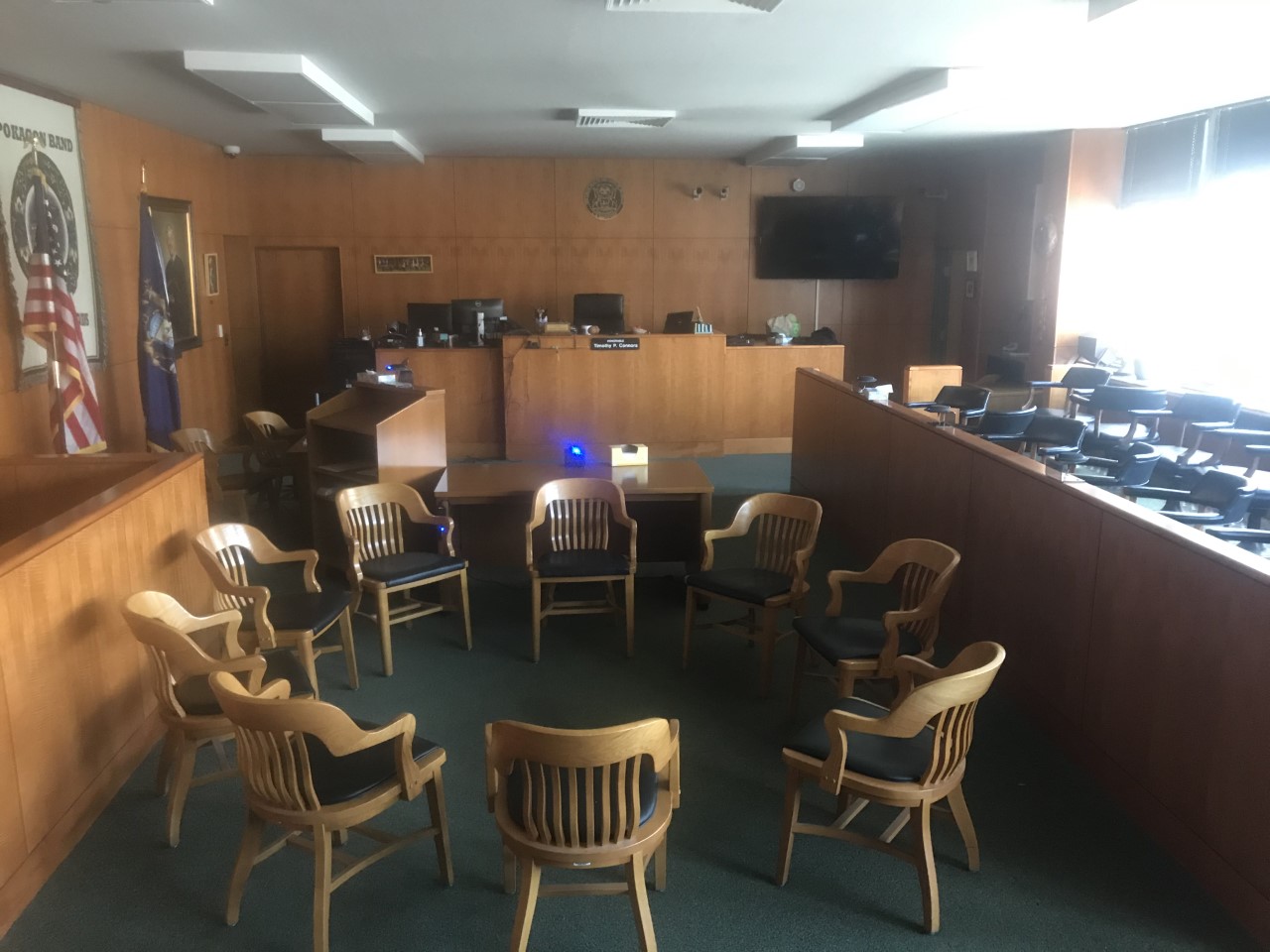ONLINE PODIUM DISCUSSION: Peacemaking Circles: Healing in Native American Communities and Beyond
Notes & Changes
This event is co-hosted with the Indigenous, Interdisciplinary Discussion Group.
Please note the change of time. Due to the unprecedented circumstances, OTJR's seminar series will relocate online (via live conference with the speakers) until further notice.

Abstract
The history of Native America has been one of both systemic oppression and community resilience. In an effort to heal from centuries of violence and persecution, many tribes have relied upon the wisdom and traditions of their own cultures. As part of this cultural revitalisation movement, Native American communities across North America have strengthened and even codified their traditional mechanisms of conflict resolution. Often called Peacemaking Circles, these mechanisms tie in cultural and community values to find resolution and foster the restoration of relationships.This event will bring together three speakers who have helped facilitate the Peacemaking movement in different ways.
Brett Shelton has partnered with indigenous communities across the United States and Canada to build tribal Peacemaking mechanisms. His work provides a comprehensive view of how tribal communities use these mechanisms to heal from the violence and impacts of colonialism through their own traditional mechanisms of justice.
Our second speaker, Judge Timothy Connors, a state court judge in Michigan, has acted as an ally to tribal communities and collaborated with indigenous peoples to develop a Peacemaking mechanism in his court. He will discuss these efforts to indigenise the judicial system and how this has cultivated stronger relationships between Native American communities and the state court in Michigan.
Finally, our third speaker, Professor Margaret Connors, has collaborated with indigenous communities to share Peacemaking in academia. Through her teaching at the University of Michigan, she hopes to train the next generation of lawyers in diverse ways of thinking and, ultimately, radically transform the ways in which these young professionals understand justice."
Biographies:
Brett Lee Shelton is a member of the Oglala Sioux Tribe and also has Itazipco Lakota and Cheyenne ancestors. He is a Staff Attorney at the Native American Rights Fund, where he focuses on the Indigenous Peacemaking Initiative, Boarding Schools, and Sacred Places.
Brett has extensive experience representing and advising tribal governments, agencies, and enterprises in general governmental, health and human services, employment, natural resources, construction, and economic and business development matters, as well as contributing legal advice and litigation support for various private individuals, businesses, and development initiatives. He received his law degree from Stanford University, and a Master of Arts from the University of Kansas.
Judge Tim Connors has been a State Court Judge since 1991. For eleven of those years he served as a Chief Judge. He has served by appointment as Judge Pro Tem for the Little Traverse Bay Bands of Odawa Indians. Judge Connors is the Presiding Judge of the Washtenaw County Peacemaking Court. He also presides over cases in the Civil and Domestic Divisions of the Washtenaw County Trial Court and handles the Neglect and Abuse docket for the Juvenile Court. Judge Connors has focused a great deal of his career on Peacemaking practices, which can be seen in the classes he teaches at the University of Michigan, as well as through his multiple published works on Peacemaking and Federal Indian Law.
Professor Margaret Connors (University of Michigan Law School) currently teaches courses on Peacemaking in State Justice Systems, Family Law Litigation, and Trial Advocacy. She graduated from the University of Toledo College of Law and entered private practice in general civil litigation in Ann Arbor, Michigan. After two years, she joined the Washtenaw County Prosecutor's Office. She was promoted to first assistant of the Cooperative Reimbursement Division, a position she held for four years before entering the criminal litigation department. She retired from the prosecutor's office after more than 18 years. Margaret has a long history of teaching the next generation. She taught art for grades 1-12 for more than 12 years. She received an MA in special education for the emotionally impaired from Eastern Michigan University.

